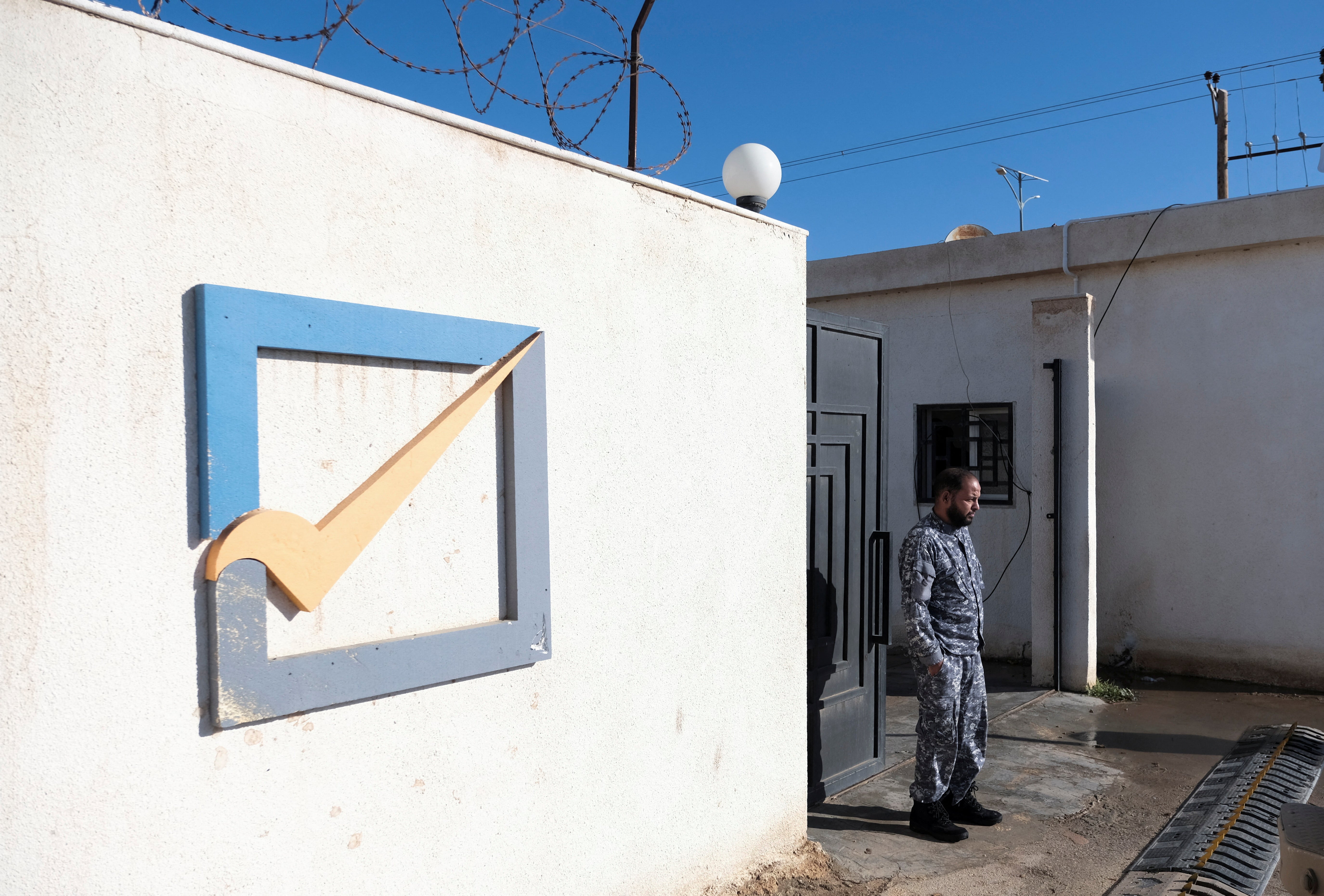Libyans voice anger at derailed election as disputes rumble on
Delay to the planned 24 December polls has sparked fears of fresh violence in Libya

Your support helps us to tell the story
From reproductive rights to climate change to Big Tech, The Independent is on the ground when the story is developing. Whether it's investigating the financials of Elon Musk's pro-Trump PAC or producing our latest documentary, 'The A Word', which shines a light on the American women fighting for reproductive rights, we know how important it is to parse out the facts from the messaging.
At such a critical moment in US history, we need reporters on the ground. Your donation allows us to keep sending journalists to speak to both sides of the story.
The Independent is trusted by Americans across the entire political spectrum. And unlike many other quality news outlets, we choose not to lock Americans out of our reporting and analysis with paywalls. We believe quality journalism should be available to everyone, paid for by those who can afford it.
Your support makes all the difference.Libyans have voiced their anger at the delay to the presidential election that was planned for Friday, as factions and political leaders tussled over the perilous path ahead.
The election was part of a UN-backed process that also involved setting up an interim government earlier this year as steps towards ending the decade of chaos and violence since the 2011 NATO-backed uprising against Muammar Gaddafi.
In Benghazi, Wahbi Tarkhan, 81, said he and his wife had both registered for the election and were disappointed by the collapse of the process.
“We were eagerly waiting for this day in our minds,” he said.
Earlier this week, Libya’s parliament said Friday’s planned presidential election would not go ahead, leaving the internationally-backed peace process in chaos and the fate of the interim government in doubt.
The electoral commission proposed pushing back the voting date by a month, confirming a delay that had been widely expected amid disputes over the rules, including the eligibility of several divisive candidates.
However, there is no wider agreement yet on the 24 January date the commission proposed and the disputes over the election’s legal basis and fundamental rules remain unresolved.
The 2014 parliament, aligned with eastern forces during the civil war, has set up a committee to meet on Monday to propose its own roadmap forwards.
The fate of the interim Government of National Unity will also be a major source of dispute, with the parliament having withdrawn confidence from it in September.
Meanwhile the United Nations has been in touch with members of a political dialogue that last year produced the existing roadmap that created the interim government and called for simultaneous parliamentary and presidential elections.
UN special adviser Stephanie Williams said on Thursday that during meetings across Libya she had consistently heard people voicing a desire for elections.
“I call upon the concerned institutions to honour and support the will of the 2.8 million Libyans who registered to vote,” she said.
Any fresh effort to resume the electoral process will have to weigh the dangers inherent in a delay against the risks of again attempting an election without consensus on the rules.
Libya’s last election in 2014 was the trigger for rival eastern and western factions to split apart into warring parallel administrations.
Musa al-Sulaimani, who has registered to stand for the parliamentary election, said he felt very frustrated by the delay.
“This was something the Libyan street resented,” he said.
Reuters



Join our commenting forum
Join thought-provoking conversations, follow other Independent readers and see their replies
Comments